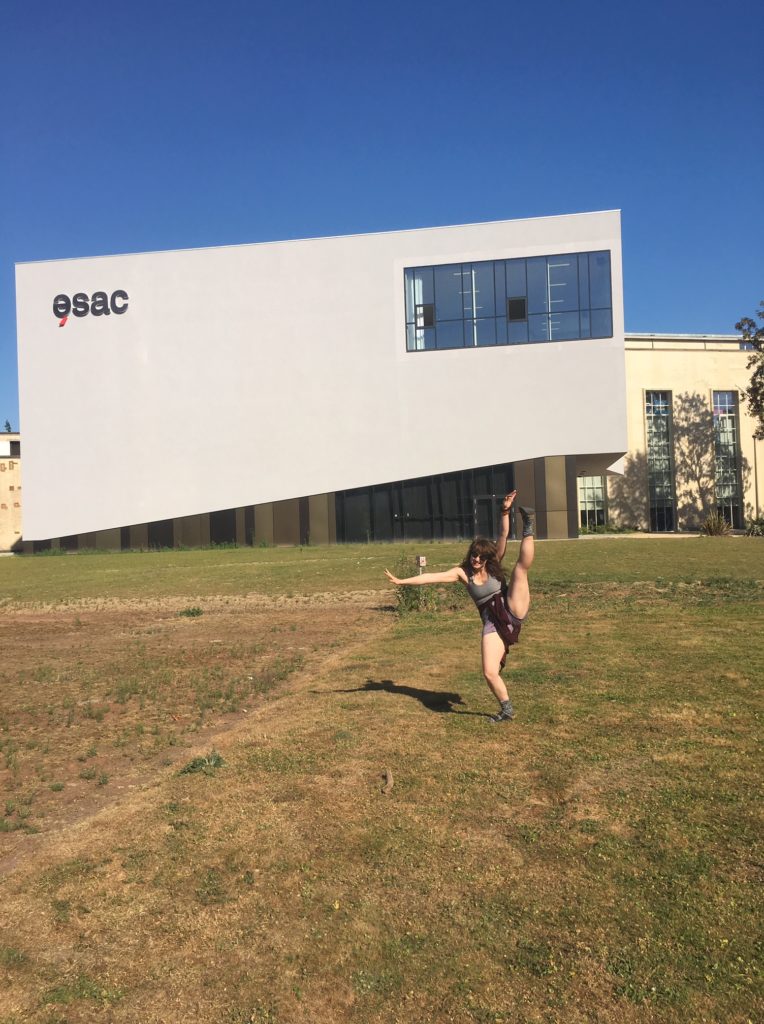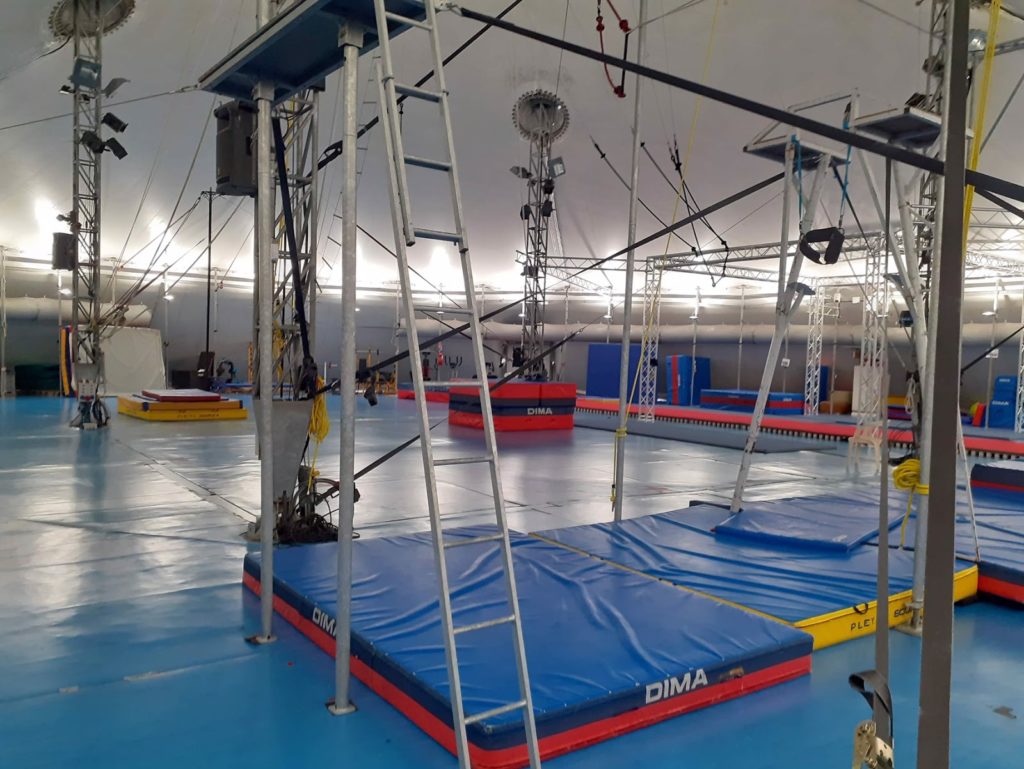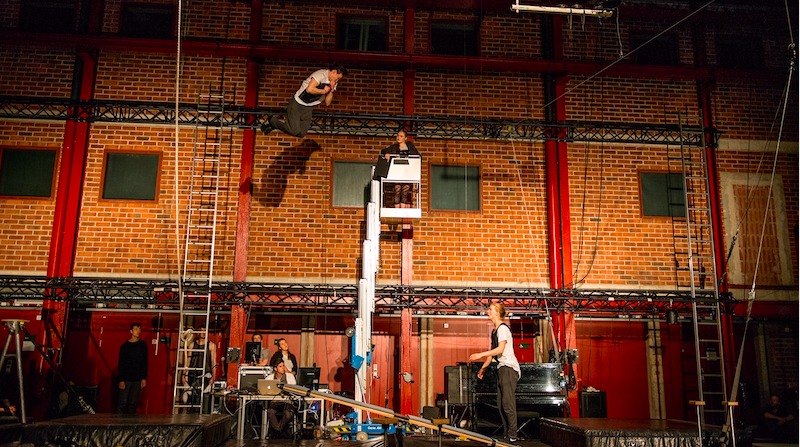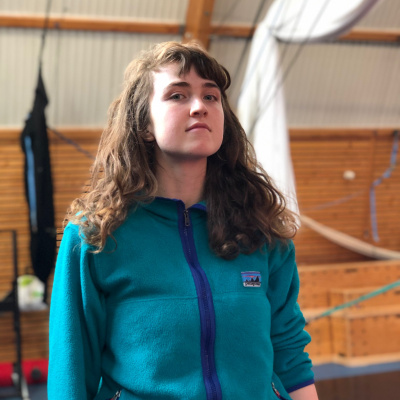8 Questions to Ask Yourself When Deciding Where to Study Circus
Ah spring, with longer days ahead, flower buds blooming, and… circus school auditions! Yes, audition season is upon us, with several schools already having held selection days. While juggling (haha, forgive me) deadlines, papers, travel plans, and endless cover letters, it can be tough to keep in mind the end result it’s all moving towards — and nagging questions arise. Will I be happy here? Is this the right school for me? Here are some questions to ask oneself while deciding which auditions to go to and ultimately, which school to pick.
1) Should I go for a prep school, an artistic program, a university-level school, or something in between? What’s the difference between those things and how will it affect the experience I have?
Coming from the US, where most circus schools use one curriculum for all the students’ different needs, it took a while to wrap my head around all the different types of circus school. Some schools, like in the US, offer one curriculum and the students decide what to use it for. Other schools, such as CRAC Lomme-Lille and L’école de Cirque Jules Verne (Amiens) (France), Carampa and Rogelio Rivel (Spain), and FLIC and Cirko Vertigo (Italy) all offer 3-year programs. Some of their students work directly afterward, and some audition for other schools.

University Programs
But what if these two needs — to start working and to audition for other schools — were separated? That leaves you with prep schools and upper programs. We can further separate upper schools into two types — universities and artistic programs. Universities, or “écoles supérieures” in French, offer a bachelor’s degree over three years. Some of these schools you may have heard such as DOCH (Sweden), ÉSAC (Belgium), Centre National des Arts du Cirque (France,) Academie Fratellini (France,) and recently, Le Lido (France). In Canada, there’s also ÉNC and École de cirque de Québec. These schools sometimes, but not always, place an emphasis on having a high technical level in circus, supplemented with artistic disciplines like dance and theatre.
Someone might choose a university if: They want to be pushed physically and have a high level of technique; they want to be hired by a well-known circus company later; they want to attend a school with a good amount of notoriety and resources; or, these were the only schools they’ve heard of. I’m not kidding about that.

Artistic Programs
Universities do tend to attract the public eye more than artistic programs, even though the quality of instruction remains about the same between the two. They just serve different purposes. Artistic programs, such as Balthazar, Piste d’Azur, and Arc en Cirque ( all in France), offer a diploma at the end of three years that certifies the student as an “artist of circus and movement,” and this diploma is recognized within the artistic field in France. These schools generally, but not always, place a high emphasis on research, scenography, theatre, and movement, and use circus disciplines to put their artistic proposition on stage.
Someone might choose a artistic program if: They’re interested in working in a small company or creating a solo show; they already have a strong sense of artistic identity and want a lot of freedom to develop that; they want to have a show or project ready to be performed at the end of school.
Prep Schools
Finally, prep schools are exactly what they sound like — the school prepares the student for attending another circus program afterwards.
Someone might pick a prep school if: They’re on the younger side; they’ve changed disciplines and need to master the basics of this new specialty; or if they’re not sure what kind of project they want to pursue at a university or artistic program.
The big takeaway: It’s easy to believe that a certain circus school is the best one for you because it’s the one you’re most familiar with. But maybe there’s a different school…I take that back…there definitely is a school out there that suits your wants and needs.
2) What are my financial resources? Which schools are more expensive and why?
If you’re American like me, you will probably blink twice when looking at tuition prices for various circus schools outside the United States. In general, the cost is a fraction of what some universities ask. However, at least in Europe, the price can vary widely depending on the country where one lives and what kind of program they choose. For EU citizens, the price of circus university is usually comparable to the inscription price of an academic university. I attend the prep program at Arc En Cirque in Chambéry, France, and I pay 500 euros a year in tuition. My mom actually laughed when I told her how little it costs. We are able to enjoy this tuition price because my school applies every year for grants, subventions, and financial support from the city, department, region, and federal government of France.
Across France, prices remain similarly low. Registration fees at the Centre National des Arts du Cirque (CNAC) amount to about 400 euros the first year and 250 the following years*, and at the Academie Fratellini, the students are considered apprentices and receive a stipend throughout their time there.
In London at NCCA, however, EU students will pay 9,250 pounds per year, and international students 17,930.** This information is available on most schools’ websites and warrants research when you apply. In addition, the resources available to students such as financial help with rent, the baseline price of rent in the city where you’ll be studying, discounts on bus passes, and the general cost of living are all things to consider. Students that attend The New England Center for Circus Arts (NECCA) in Brattleboro, VT (USA) may very well find different rent prices than students who attend Circadium in Philadelphia, PA (USA). Do your research to figure out how to make this moment in your life as comfortable, sustainable, and enjoyable as possible.
3) What’s my circus discipline? Does my school of interest accommodate this discipline? Do they have a good teacher for it? Do I need a teacher?

Much the same as academic universities, circus schools often do carry a reputation for having a good program in one discipline or another. Think of all the amazing Cyr wheel artists that have graduated from ÉSAC in Brussels, or the teeterboard troupes from DOCH in Stockholm, or the tramp wall runners from Québec City. This can be attributed to the amazing teachers and coaches that work at these schools, of course. But take a closer look at the facilities at all these institutions. ÉSAC has a lot of flat floor space with “marly” (dance floor) laid down, whereas DOCH has the ceiling height and foam pits needed to learn teeterboard, and Quebéc’s tramp wall is the largest I have seen in a circus school. These schools all have the physical space and equipment to accept students with these disciplines. Often, this balance is taken into consideration at auditions as well. Arc En Cirque has an amazing tightwire teacher but does not have the space to take an incoming class of eight wire students, so some triage has to be done when accepting applicants. (We have been capped out at two wire students this year).
But you, however, may already be a genius in your circus discipline. What if your needs are different? Some circus students come in with a super high level of technique but want to round out their profile with training in acrobatics, dance, scenography, and theatre. You may not require your school to have a teacher well versed in your discipline. Instead, focus on the areas where you DO want to be pushed. Does this school have a really amazing theatre coach? Do you need just a general acrobatics coach present to pull lines for you? It’s up to you to decide what your needs are and which program will best fill them.
4) What languages do I speak? What languages am I willing to learn? What’s the spoken language of the program I’m applying to and the country where it’s located?
I am a professed language enthusiast. Geek. “Intello” in french. The idea of moving to a country in Europe where I did not speak the language was not frightening to me; though I did actually end up in the home of the language I speak second- best. My school is taught entirely in French, and US international students receive very little support for learning or bettering our language skills. Some schools (ÉSAC, ÉNC) offer french classes for non-francophones, and some circus schools in northern Europe are actually taught in English. ACAPA and CODARTS in the Netherlands, Salpaus/SaSak in Lahti, Finland, DOCH in Stockholm, and AFUK in Copenhagen all have English as their main or secondary teaching language. These are all countries whose languages are so little used outside their borders that it would be tough to integrate international students if the curriculum was friendly only to Swedish or Dutch speakers.
However, even if your flexibility teacher at SaSak can yell at you in English, your Finnish landlord may only be able to yell at you in Finnish. If moving to Europe for circus school is in your game plan, I highly recommend getting on Duolingo or finding some way to get the language train going. Choo-choo, Finnish landlord.
5) How old am I?
I have heard so many opinions on this topic. Which schools care about age? Does age really matter? If so, what is the upper age limit? I will try to answer these questions to the best of my knowledge frommy personal experience. Some schools care how old you are. Some schools consider 18 or 19 too young. Some schools consider 24 to be too old. Some schools say they care about age, but will make exceptions for certain students. Some schools care about age in relation to discipline: an older hand to hand porter may be seen differently than an older basculiste (teeterboard jumper.) Some schools are restricted in age by their country’s laws about university. Le Lido in Toulouse is well known for taking older students, but because it recently switched from being an artistic program to a university program, they lowered the age cap to 26. Will this change the school’s admission practices? We shall wait and see. My young readers: if you get rejected from an institution because of your age, think of how much time you have ahead of you! Of all the cool things you’ll get to learn! We are so lucky to have you. To my older readers: I have a classmate in the artistic program at Arc En Cirque who entered the school at 33. I have a friend who was accepted to DOCH in his late 20s and is getting his performing career going in his early 30s. There is a place for you, my mature acrobat. And when the right match clicks with you and a school, think of all the life experience you get to bring to your creations on stage. We are so lucky to have you.
6) What kind of circus do I like? (IE: how hard do I want to be pushed by coaches in research, physical strength, acrobatics? What mentality am I looking for in my classmates? How many disciplines do I want to practice? What kind of job do I want after?)
You, me, and everyone we know does not see circus the same way. We all have different tastes in shows, the way we like to train, the way we think about art, and what being a circus artist means to us. Ask yourself what is important to you — being crazy good at tumbling? Finishing school with a street show ready to be performed? Being able to do 50 pull-ups? Meeting like-minded classmates you can form a collective with? Some schools like Québec encourage students to take two disciplines, and others prefer the students to focus on one. The moment has come to reflect on what kind of circus you like to make and watch. Take the time to talk to students and graduates from circus schools that interest you about how they see their roles as artists, and you may get a good idea of where you will feel most at home.
7) How long do I want to be in school? (Two years? Four years? Five years?)
Most prep schools are two years long (as noted above). Most universities or artistic programs are three years long. Because prep schools function under the assumption that a second program will follow, the timeline between starting prep and finishing school is estimated at five years. Some people try several prep schools before finding the one that works for them. That would bump that timeline up to six or seven years of school. The two schools of the Netherlands (ACAPA and CODARTS) offer a BA over four years of school, so prep followed by one of them would put the student directly at six years of studying. And some people are directly accepted to three-four year artistic or upper-level programs. This timeline is a good thing to keep in mind when planning out financing your circus studies, thinking about at what age you want to start working, and quite honestly, for mental and physical health as well. Circus school is hard on the mind and body and depending on the person, some folks may not be able to or want to go through more than three or four years. Others may change their discipline halfway through their schooling, switch duo partners, or decide they want to take a different approach to their circus career: in which case seven years of circus schools may be needed or just end up happening. Everyone is different. Stay open to what may come, and make decisions based on what’s right for you.
8) What kind of school/ life balance do I want?
My circus school does not permit us to train after school hours or on the weekend without specific permission for the administration. Other schools, like Théatre Cirqule in Geneva, encourage their students to train in the evening. Some schools even give their students keys to the facility. Also, I have a 15-minute bus ride every day to school. Some friends of mine at ÉSAC make a 45-minute commute by metro. A lot of Lido students have a 5-minute bike ride. And Cirqule in Geneva houses it’s students on-site in little caravans, the rent for which is covered by the students teaching after-school circus classes to kids (because who can afford to be in circus school and pay rent in Switzerland? Certainly not I.) I feel good about my set-up here in Chambéry. I like having a short commute and a home life that’s pretty separate from my school.
It’s easy to believe that a certain circus school is the best one for you because it’s the one you’re most familiar with. But maybe there’s a different school… I take that back…there definitely is a school out there that suits your wants and needs.
But I know that for certain people, being able to go train at night is really important to them. Ask yourself what kind of work/ life balance feels best to you, and of course, ask current or former students what living in their area is like.
After all of this rambling, wisdom, and advice — sometimes, the choice is made for you. When I auditioned for Chambéry, I sent out five applications, got three auditions, and got into one school. I like to believe that it’s because this program is what I needed at the time, and the schools could see that. I remember growing up in New England and only knowing about the two Canadian circus schools in Québèc, both of which I auditioned for and was denied. Coming from North America and being a little ignorant of other kinds of circus and circus education, it was easy for me to feel like if I didn’t adhere to what these two schools wanted, I didn’t have my place in the career I dreamed of.
But that would be like saying “Oh, I didn’t get into Princeton and Yale, what if I can’t go to college?” Of course, there’s a spot for you. There’s a spot for everyone. Sometimes, we just have to reflect on what we want, do a little digging, a lot of traveling, and several auditions to find it.
Related content: 6 Tips for Applying to Circus Schools
Resources (*https://www.cnac.fr/article/1849_Registration **https://www.nationalcircus.org.uk/degree-diploma/further-information--higher-education/fees-and-funding
All photos provided courtesy of Ivy Blake.Feature photo of the circus department at DOCH, Stockholm. Photo by Einar Kling Odencrants
...
Do you have a story to share? Submit your news story, article or press release.



